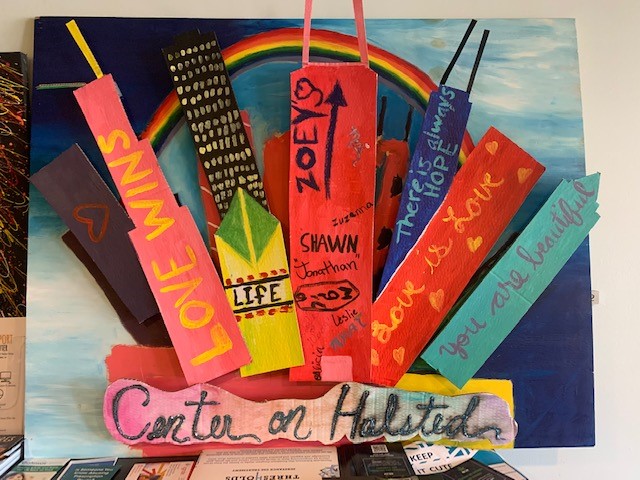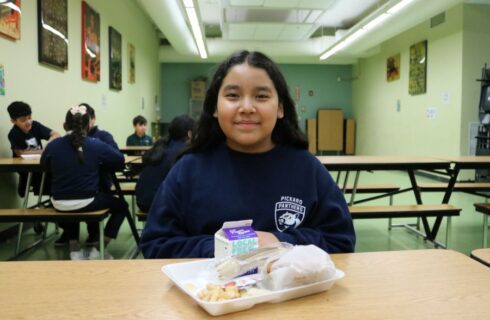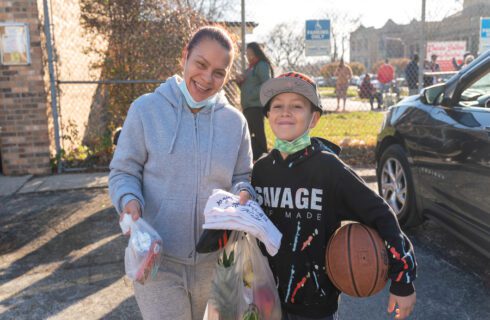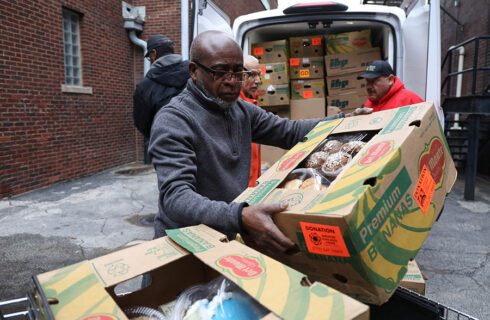For Devin Williams (he/him), Center on Halsted represents a fresh start.
Williams, 22, recently found housing with help from the center, one of Chicago's largest LGBTQ+ service organizations. He's been a resident of a nearby youth shelter since May.
"I put a lot of value into the staff that's around," he said. "They're really here for us."
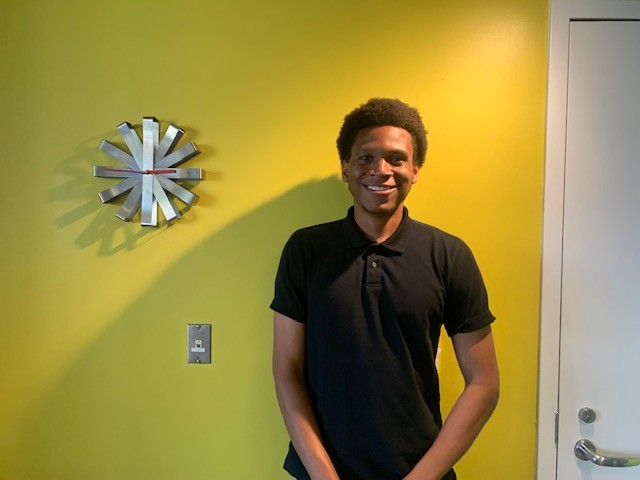
Devin Williams (he/him), 22
In times of need, the center has also become somewhere he can turn to for food. Williams is a Certified Nursing Assistant for a nursing agency that primarily operates in the suburbs. His commute to work can sometimes be two hours long, making it difficult to have steady income. If he's unable to work, he's unable to pay for groceries.
Center on Halsted is able to alleviate some of that stress, he said.
"A lot of people here do not have money, cannot work, or are looking for jobs," he explained. "You need to have something in your stomach while you wait for a response."
Center on Halsted, located in Chicago’s Lakeview neighborhood, has been providing support and services for LGBTQ+ youth and young adults for over 15 years. A longtime partner of the Food Depository, Center on Halsted also provides food for those they serve.
Across the U.S., hunger disproportionately affects the queer community. According to a 2021 Household Pulse Survey by the US Census Bureau, 13.1% of adults who identified as LGBT lived in a household that experienced food insecurity, compared to 7.2% of non-LGBT adults.
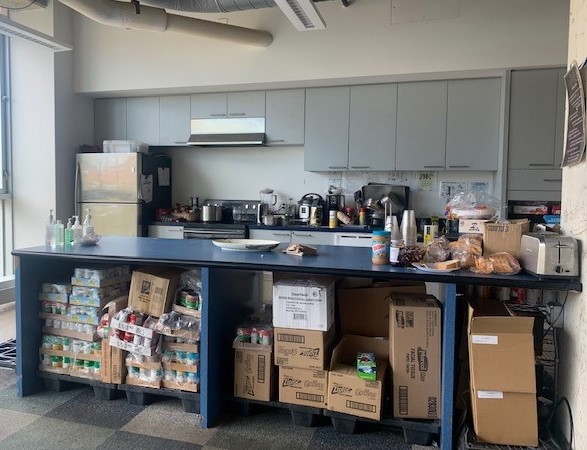
Center on Halsted kitchen area
Center on Halsted provides food and snacks to youth that are part of the program, but also won’t turn anyway anyone who is in need of something to eat.
“Most of our food is provided to us by the Greater Chicago Food Depository and sometimes it’s these kids last meal before they have to go back into the shelter,” said Alton Dueks (he/him), the center’s youth program case manager.
Dueks, originally from the Englewood neighborhood on the city’s South Side, has been with Center on Halsted for seven years. He’s been a for more than two decades and was inspired to work for the center when he noticed the lack of resources available to trans youth. Center on Halsted offers community and support ranging from cooking classes, breakfast with the opportunity for HIV testing and a toiletry pantry, open art hours, and Q Chat, which is a safe space created to meet other LGBTQ+ and questioning teens.
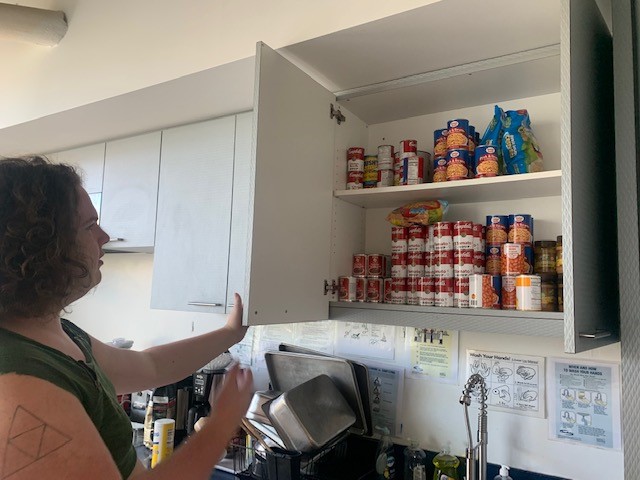
Zelda Cohen (they/them), 21, showing some of their shelf-stable items.
Their youth program’s offerings vary by month, season and staffing, but food is always available. Currently, they serve hot meals one night a week. Their goal is to grow staff and support in the coming year.
Luke Romesberg (he/him), director of youth homelessness services, said the center recently received a $1 MM grant by Congressman Mike Quigley that will allow them to expand its housing in Chicago’s south side. The goal is to serve 30 to 40 youth within two years. Right now, the program can only house eight.
The Center has partnerships with Sweetgreen and Whole Foods, which Romesberg said provides additional healthy options at the center.
“We do our best to fit the need to make sure that nobody is leaving hungry,” he said
Zelda Cohen (they/them), 21, has been in and out of youth residential programs since the age of 11. Most recently, with help from Center on Halsted, Cohen was able to find housing and access to food.
But the center has provided more than just that, Cohen shared. They have leaned on the center for community and pride. A place to be themselves.
“One of the things that was nice about this place is that they were accepting of me,” Cohen said. “This place helped me be better in accepting myself.”
Share This Post

